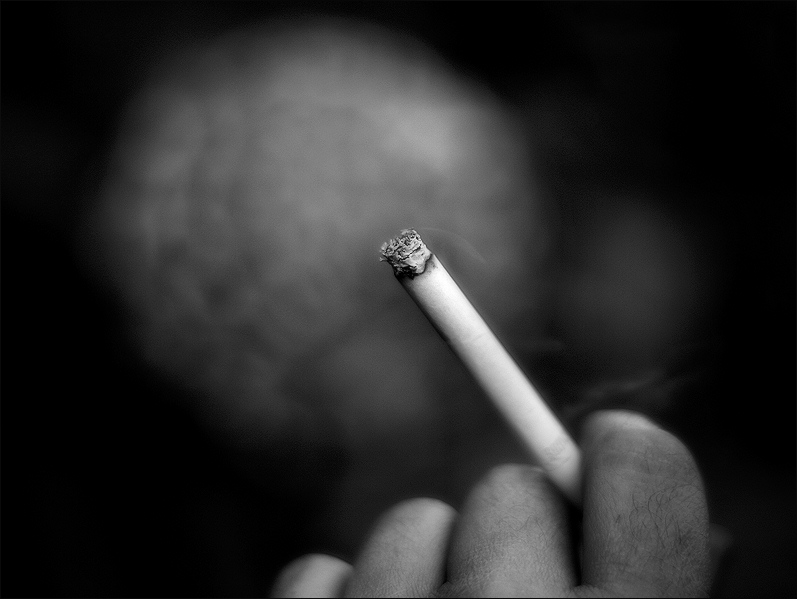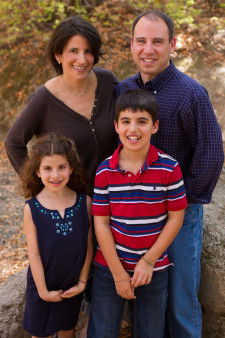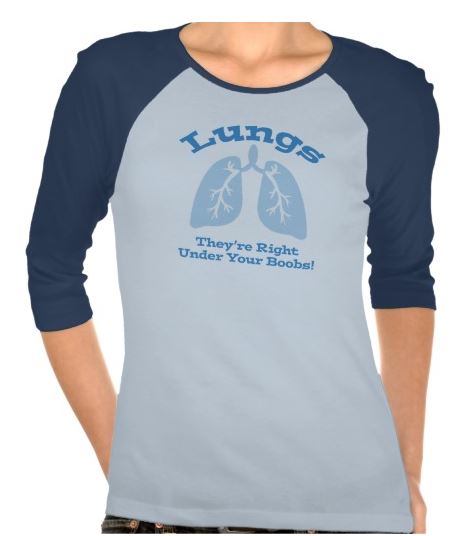Go Ahead (and ask me if I smoked) … Make My Day

Photo credit: Ferran Jordà / Smoke
Why? Because I’m pretty damn sure that even if you don’t ask, I know what you are thinking. If you’re anything like I was pre-diagnosis, you’re assuming I’m a smoker, or a former smoker, or, at the very least, that I’ve been exposed to lots of second-hand smoke. But, you’d be wrong. And, I’d love the opportunity to educate you and as many others as possible about the realities of lung cancer. I think I can do more to dismantle the stigma by inviting the conversation, rather than stifling it.
The “Did you smoke?” question is offensive, of course, because it implies that the person deserves their cancer more than other types of cancer patients, and thus merits less support or inferior medical care. The question is sometimes motivated by the inquirer’s need for a false sense of security (the “I’m safe because you smoked and I didn’t” line of thought), which is understandable, albeit patently wrong. But, the inquirer won’t learn how wrong they are if I don’t get a chance to talk with them.
If you ask me if I smoke(d), here’s what I’d say (sweetly, of course; I’ll roll my eyes at you later): I am a healthy, never-smoker with lung cancer (I’ve never lived or worked with smokers either, so you can forget that loophole). My story shocks a lot of people, but it shouldn’t. Lung cancer is the #1 cancer killer worldwide. And two-thirds of us are either never-smokers, or long time non-smokers. I am not a fluke, some crazy exception to the rule, easily dismissed. Lung cancer strikes tens of thousands of non-smokers every year.
Let’s talk about that stigma head on, as well. What if I did answer that question “Yes, I smoked”? Should that change anything? I’m no tobacco company apologist. I find the habit repugnant, but I separate that from the people who partake (so long as they don’t partake near me). 90% of smokers started their habit before they turned 18, prey to the Svengali marketing magic of a billion dollar industry. Many GIs received cigarettes in their rations from our government. Tobacco is notoriously more addictive than heroin. Can we really abandon people who got hooked on a bad habit in their youth or while serving our country, essentially leaving them for dead? And if so, why only abandon smokers unlucky enough to get the stigmatized lung cancer, even though smoking is a major risk factor in many other maladies (e.g. bladder cancer, stomach cancer, breast cancer, heart disease)? Finally, religion isn’t my area of expertise, but I think the Bible says something about “don’t throw stones because those stones can hurt when they come back in your direction” (I’m paraphrasing) — smoking is a bad choice, but there are plenty of other bad choices that can impact your health. Poor diet, lack of exercise, excessive alcohol, insufficient sleep, these are just a few things that can cause disease. Should we dismiss a patient with breast cancer because of her sedentary lifestyle or potato chip habit?
Lung cancer, as my friend Janet says, “has an image problem.” “Stigma” is an ephemeral thing, but it has concrete effects. It is the reason why lung cancer receives dramatically less funding, both federal and private, than any of the other major cancers. And – as a consequence of the insuffiient funding – it’s the reason lung cancer is the most deadly cancer in the world (there is a direct correlation between funding, which supports research, and survival rates). If we can dismantle the stigma, funding and research will increase, and survival rates will improve. My way of combating the stigma is by being as public and vocal as possible. When an infusion lab nurse whispers my diagnosis conspiratorily, as though it’s something I should hide, I respond in full sotto. When someone asks how I’ve been, I share my story, even if it’s a little uncomfortable. Sometimes it’s not easy, but it’s important. It could save lives. It could save MY life.
So, go ahead and ask. Make my day.


